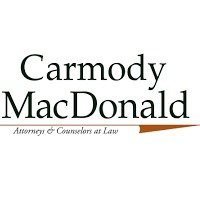Best Debt & Collection Lawyers in St Louis
Share your needs with us, get contacted by law firms.
Free. Takes 2 min.
List of the best lawyers in St Louis, United States
About Debt & Collection Law in St Louis, United States
Debt and collection laws in St Louis, part of the broader Missouri state legal framework, oversee how debts are managed and collected. This area of law protects both creditors and debtors, ensuring that the collection process is fair and equitable. Debt and collection laws in St Louis are designed to prevent abusive practices by debt collectors, while also outlining the legal rights and responsibilities of debtors. The Fair Debt Collection Practices Act (FDCPA) is a federal law that plays a significant role in guiding these processes, and local adaptations provide additional specifics relevant to residents and businesses in St Louis.
Why You May Need a Lawyer
Individuals may require legal assistance in debt and collection scenarios for various reasons. Common situations include:
- Harassment by Debt Collectors: If you are experiencing persistent or abusive calls from debt collectors, a lawyer can help you understand your rights and possibly file a claim under the FDCPA.
- Disputed Debts: Legal advice can be crucial if you are disputing the validity or amount of a debt. An attorney can assist in negotiations or represent you in court.
- Debt Settlement or Negotiation: Lawyers can help negotiate settlements or payment plans that are more manageable, potentially saving you money and easing financial stress.
- Bankruptcy: In situations where debt becomes overwhelming, legal counsel can guide you through bankruptcy proceedings, explaining types and consequences for your financial future.
- Understanding Rights and Obligations: A lawyer can clarify what your legal rights are if you are unsure, helping you to make informed decisions about handling your debts.
Local Laws Overview
St Louis follows the Missouri Laws regarding debt and collection, with several key features impacting debtors and creditors:
- Exemption Laws: Missouri laws provide certain exemptions for property and income, allowing debtors to retain some of their assets during the collection process.
- Wage Garnishment Limits: In Missouri, the maximum part of disposable earnings exempted for garnishment is 10% if the head of a family or 25% if not.
- Statute of Limitations: The time frame for creditors to file suit to collect a debt in Missouri can vary depending on the type of debt. Typically, written contracts have a 10-year limitation, while oral agreements and open accounts like credit cards have 5 years.
- Protections Against Discrimination: Creditors are prohibited from discriminating against a debtor based on marital status, sex, race, or age under the Equal Credit Opportunity Act, applicable in St Louis as well.
- Out-of-State Judgments: Missouri law outlines specific procedures for collecting debts if the creditor obtained a judgment outside of Missouri.
Frequently Asked Questions
What is the Fair Debt Collection Practices Act (FDCPA)?
The FDCPA is a federal law that restricts the behaviors and actions of third-party debt collectors. It prohibits abusive, unfair, or deceptive practices when collecting debts from consumers.
Can a debt collector contact me at any time?
No, debt collectors are not allowed to contact you at inconvenient times. Typically, calls before 8 a.m. or after 9 p.m. are considered inappropriate unless you agree to it.
What should I do if a debt collector threatens legal action?
Document these interactions and seek legal advice. Threats of legal action can constitute potential FDCPA violations if made frivolously or inaccurately.
How can I verify a debt collector?
Request written validation of the debt from the collector, which they are required by law to provide. Verify the legitimacy and history of the debt to prevent scams.
Can wages be garnished to collect unpaid debt?
Yes, but there are limits on garnishment amounts and procedures that must be followed. Missouri law caps at 10% or 25% of disposable earnings, depending on certain factors.
Is there a legal way to avoid paying a debt?
Legally, you cannot avoid paying a legitimate debt, but there are ways to manage and reduce it, such as negotiating settlements or exploring bankruptcy options.
What debts are dischargeable in bankruptcy?
Typically, unsecured debts like credit card debt and medical bills can be discharged. However, student loans, child support, and certain taxes are usually non-dischargeable.
Can I handle debt negotiations myself?
Yes, you can, but legal counsel might effectively negotiate better terms and ensure that your rights are protected throughout the process.
What must a creditor do to begin legally collecting a debt?
Creditors must authenticate that you owe a debt and typically need a court judgment to garnish wages or seize assets legally.
Do I have protection against a lawsuit regarding old debts?
Yes, if the statute of limitations has expired, which is determined by the nature of the debt and Missouri law. Legal advice can help clarify your specific circumstances.
Additional Resources
Consider reaching out to these resources for assistance and information regarding debt and collection issues in St Louis:
- Missouri Attorney General's Office: Offers information on consumer protection and resources for dealing with debt collectors.
- Legal Services of Eastern Missouri: Provides free legal assistance to eligible residents, particularly around consumer law issues.
- Federal Trade Commission (FTC): For comprehensive guides on the FDCPA and rights regarding debts.
- St. Louis Bar Association: They offer lawyer referrals and resources specific to Missouri law and St Louis local regulations.
- Consumer Financial Protection Bureau (CFPB): Offers education and tools to assist consumers dealing with debt collectors.
Next Steps
If you believe legal assistance is necessary for your debt or collection issues, the following steps can guide you:
- Document Everything: Record all communications with creditors and collectors, keep all letters, and note any potentially unlawful behavior.
- Consult a Lawyer: Seek professional legal advice to understand your specific rights and obligations. Consider contacting the St. Louis Bar Association for a referral.
- Gather Evidence: Prior to any consultations, organize all relevant documents, including contracts, notices, and any correspondence with collectors.
- Consider All Options: Discuss with your legal advisor all available legal routes, such as negotiation, settlement, or bankruptcy.
- Take Prompt Action: Handle any legal matters with urgency to prevent escalation and protect your financial position.
Lawzana helps you find the best lawyers and law firms in St Louis through a curated and pre-screened list of qualified legal professionals. Our platform offers rankings and detailed profiles of attorneys and law firms, allowing you to compare based on practice areas, including Debt & Collection, experience, and client feedback.
Each profile includes a description of the firm's areas of practice, client reviews, team members and partners, year of establishment, spoken languages, office locations, contact information, social media presence, and any published articles or resources. Most firms on our platform speak English and are experienced in both local and international legal matters.
Get a quote from top-rated law firms in St Louis, United States — quickly, securely, and without unnecessary hassle.
Disclaimer:
The information provided on this page is for general informational purposes only and does not constitute legal advice. While we strive to ensure the accuracy and relevance of the content, legal information may change over time, and interpretations of the law can vary. You should always consult with a qualified legal professional for advice specific to your situation.
We disclaim all liability for actions taken or not taken based on the content of this page. If you believe any information is incorrect or outdated, please contact us, and we will review and update it where appropriate.










